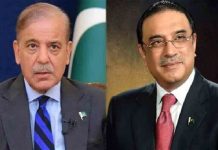— Curfew and arrests in IoK continue on 53rd consecutive day

NEW YORK: The foreign minister Shah Mehmood Qureshi highlighted the deteriorating humanitarian situation in the Indian occupied Kashmir (IOK), on late Wednesday night, to members of Gulf Cooperation Council (GCC) in the United States (US) on the sidelines of the 74th session of the United Nations (UN) General Assembly (UNGA).
According to detail, the meeting was attended by the foreign ministers of Oman and Kuwait along with permanent representatives of other GCC countries.
Meanwhile, in IOK the normal life continues to remain uncertain with parts of Jammu region under strict curfew on 53rd consecutive day on Thursday.
Main markets and other business establishments continued to remain closed and public transport is off the road in the IOK. Mobile calling service, broadband and pocket internet continue to remain shut on the 53rd consecutive day.
There was no class work in schools as efforts of the IOK administration to open educational institutions have not borne any fruit as parents continue to keep children at home due to concerns about their safety.
Most of the interiors in Srinagar’s old city continue to remain sealed with iron barricades and concertina wire while deployment of police and paramilitary forces is intact in the city and all major towns and villages across the IOK valley.
The clampdown has not only affected inter-district road connectivity drastically, but has also thrown great challenges for old city residents due to shutting of factories, industries and other work places.
Furthermore, 1,050 members of lawyers associations in IOK have gone on strike to support the protest demonstrations against tyrant Indian government’s abrogation of Article 370 and arrest of several bar members.
Among the first arrested after the Indian government’s lockdown in the IOK valley were senior functionaries of the IOK High Court Bar Association, including president Mian Abdul Qayoom, former president Nazir Ahmad Ronga, president of bar association of Baramulla district court advocate Abdul Salam Rather and president of Bar Islamabad district Fayaz Sodagar under the black law Public Safety Act (PSA), which the Amnesty International (AI) termed repressive and draconian to stop the voice and peaceful activities of people.
All of them are being held in prisons in the Indian state of Uttar Pradesh (UP), some 1,000 kilometers (km) away from Srinagar.
Indian police arrested over 13,000 of Kashmiris including Hurriyet leaders, activists, traders and other several political party leaders in houses and in jails in and outside of IOK.
Mir Urfi, a young female lawyer, said in Srinagar that the IOK authorities and Indian government had no valid grounds to arrest Main Qayoom, president of the bar association.
She said in grounds of the arrest, the police wrote, “We apprehend that you (referring to Qayoom) will motivate people to agitate against abrogation of Article 370.”
Objecting to the arrest of their colleagues, and to support the largest protests in the region against the Indian government’s actions, the 1,050-member lawyers’ association has gone on strike since Aug 5.
“The bar has an identity here,” said senior human rights lawyer, Mir Shafqat Hussain referring to the readiness of the bar to take up habeas corpus cases. Hussain mentioned, “But we relied on the law and the constitution to fight for justice” adding “How can a lawyer’s work be deemed a threat to public safety?”
Mohammed Ashraf Butt, Secretary of the bar association, said, “We cannot talk freely even in court.”
Many lawyers do not want to talk on record fearing arrest. A lawyer from the town of Handwara in Kupwara district in north IOK told international media that he was not allowed to meet tshe family of a client who was being kept in torture centre at the hands of Indian forces. He declined to be named and said, “I do not want to be unnecessarily booked under black law, PSA.”- Agencies



